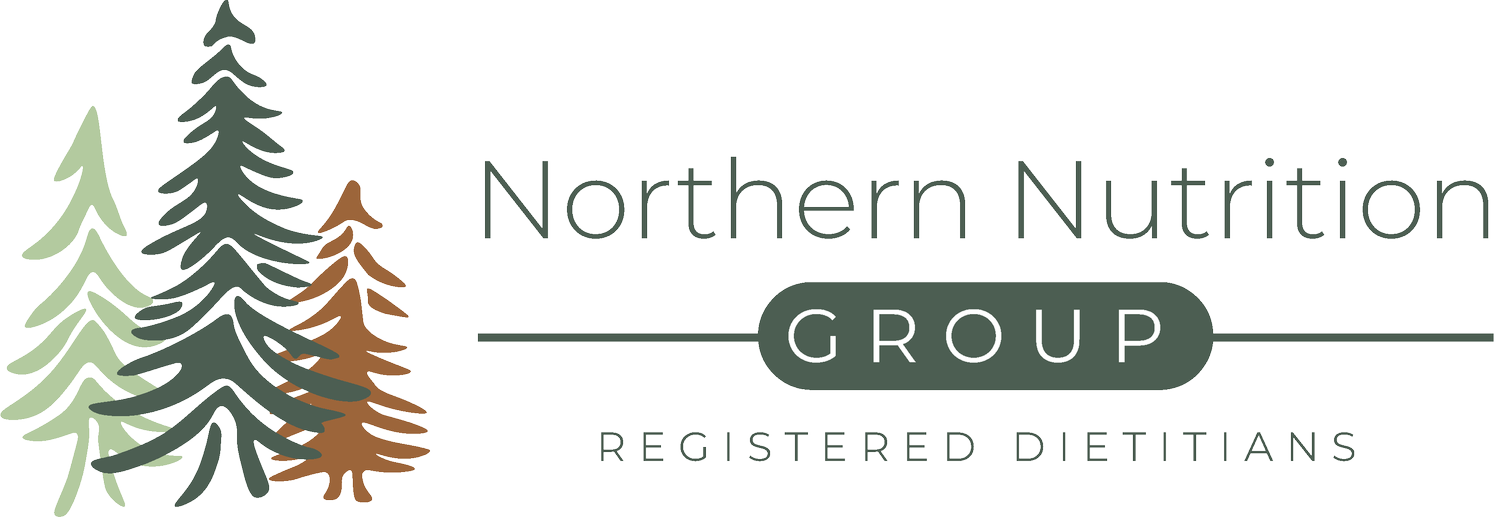Embracing Healthy and Sustainable Nutrition Resolutions
With the start of a new year, many of us start thinking about setting resolutions that focus on improving our health. However, it's essential to approach these goals in a way that nourishes our bodies with a variety of foods that make us feel good, inside and out.
Here are some nutrition resolutions to consider as you embark on a journey toward health in the new year:
1. Embrace a Variety of Foods, Not a “Good” or “Bad” List
When we categorize foods as "good" or "bad," we often end up feeling guilty or restricted, which can lead to unhealthy relationships with food. Instead, try focusing on the diversity of foods available. Aim for balance, incorporating a wide range of fruits, vegetables, whole grains, proteins, and fats into your meals. This way, every food has a place in your diet, and you can enjoy different flavors and textures.
Resolution Tip: Challenge yourself to try a new fruit or vegetable each week. Not only will this help keep your meals exciting, but it’ll also expand the variety of nutrients you’re getting.
2. Focus on How Food Makes You Feel, Not How It Looks
Nutrition isn’t about conforming to societal standards of what we "should" look like—it’s about how we feel in our bodies. Food makes us feel energized, satisfied, and nourished. Listen to your body's hunger and fullness cues, and choose foods that leave you feeling good. Sometimes, this might mean indulging in comfort food, and other times it might mean opting for something light and refreshing. There are no wrong choices, only choices that make your body feel its best.
Resolution Tip: Before meals, take a moment to check in with yourself. How are you feeling? What kind of food would nourish your body and mind right now? Trust yourself to know the answer.
3. Move Away from "Diet Culture" and Toward Sustainable Habits
Diets can often create feelings of deprivation, which may lead to a cycle of restriction and overeating. Rather than focusing on weight loss, set goals around creating lasting, sustainable habits that nourish your body. This could include drinking more water, eating more whole foods, or cooking at home more often. These habits support health without the stress of temporary diets.
Resolution Tip: Instead of focusing on weight loss, aim to create a nourishing routine. Set achievable goals like "I will prepare 3 home-cooked meals this week" or "I will enjoy a snack every afternoon to keep my energy levels up."
4. Practice Mindful Eating
Mindful eating means slowing down and tuning into your body’s signals. It’s about being present during meals, savoring each bite, and checking in with how you feel before, during, and after eating. Mindful eating can help you better understand your body’s needs and reduce mindless eating, leading to improved digestion and satisfaction.
Resolution Tip: Set aside distractions (like phones or TV) during meals. Focus on the taste, texture, and aroma of your food. Notice how different foods make you feel physically and emotionally.
5. Nourish Your Body with the Foods You Love
Healthy eating isn’t about depriving yourself of the foods you enjoy. It’s about making room for all foods in a way that feels fulfilling and balanced. Whether it’s your favorite dessert, savory snacks, or a rich, comforting meal, there’s space for enjoyment in a healthy diet. It’s about finding enjoyment in the foods you eat without guilt or shame.
Resolution Tip: If you love certain foods, let yourself enjoy them without judgment. Create a plan to incorporate your favorite indulgences into your routine, whether that’s a weekly dessert, a special meal with loved ones, or a cozy night in with your favorite comfort foods.
6. Prioritize Health over Weight Loss
A weight-inclusive approach to nutrition means focusing on health and well-being without equating it to a number on the scale. Bodies come in all shapes and sizes, and they all deserve nourishment and care. Prioritize your health by focusing on an anti-diet approach to the foods you eat and other healthy habits such as stress management, sleep, hydration, and self-compassion, rather than aiming for a particular weight or size.
Resolution Tip: Set goals that focus on holistic health, such as "I will prioritize sleep" or "I will practice daily self-care." Remember, health is about more than just the food we eat.
7. Let Go of Guilt and Perfectionism
It’s easy to fall into the trap of trying to be perfect when it comes to food and nutrition. However, striving for perfection often leads to frustration, guilt, and unhealthy behaviors. Instead, focus on progress, not perfection. Make peace with the fact that no one eats perfectly all the time, and that’s okay. What matters is consistency over time.
Resolution Tip: If you have a day where you didn’t make the “healthiest” choices, let it go. One meal, snack, or day does not define your overall health journey.
Conclusion:
Your nutrition journey should be about self-love, care, and nourishment—not restriction, guilt, or shame. As we move into the new year, let’s make resolutions that honor our bodies, focus on overall health, and celebrate the many ways food can fuel us. By embracing a variety of foods, listening to our bodies, and fostering positive, sustainable habits, we can cultivate a nourishing relationship with food that lasts a lifetime.
Written by Sara Jay, MS, RD, LN
Sara specializes in: Diabetes care and self-management for individuals with type 1, type 2, gestational diabetes, pre-diabetes, cardiovascular disease, related comorbidities and metabolic abnormalities, along with preventive support for diabetes and heart disease, and weight concerns addressed through a weight-inclusive approach.
